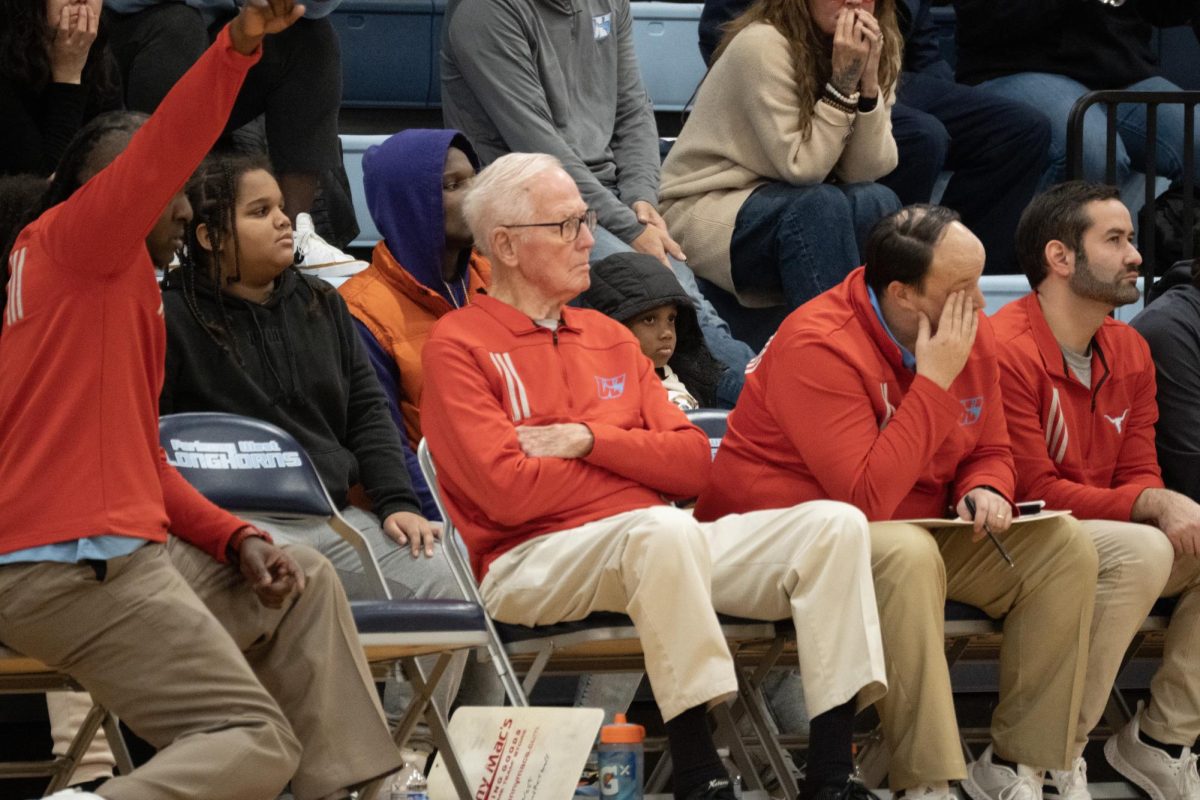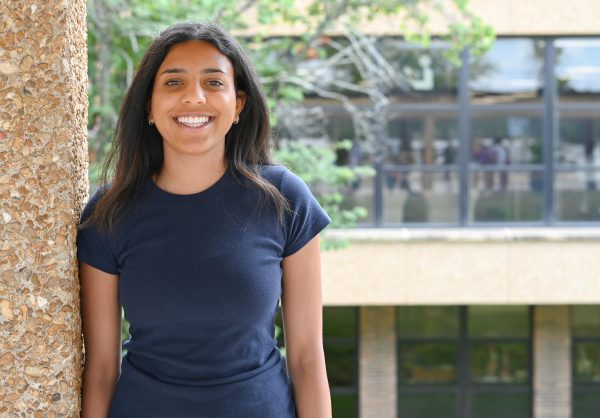The fundamental principle of popular sovereignty states that the power of the government comes from the people一 the constituents of the United States. This principle also applies to student governments, where representatives serve students and their schools. Therefore, the responsibility of maintaining a positive school environment and achieving the success that schools and students strive for comes from the students and their representatives.
At West High, the student council group, known as LOCO, serves students in multiple ways: organizing events like Special Olympics and Homecoming, participating in weekly meetings and raising funds for charity. LOCO also represents the student body 一 arguably their most important responsibility. At its core, the student council’s actions should be based on the interests of the student body. But when representatives don’t know students, how are they supposed to know their interests?
“[LOCO members] are representing their class, and they’re representing other students. It’s definitely a priority for [student representatives to connect with students],” head LOCO sponsor and physical education teacher Katelyn Arenos said.
Fostering a connection between students and their representatives is extremely important, but for West High students, there is potential for an even stronger connection. LOCO representatives could consider posting information online, including students and roles, along with contact information. There can be a real change in West High’s political atmosphere when student constituents make genuine connections, clear communications and transparency a clear priority.
While the entire student council is not entirely visible to the students of West High, certain members go further unheard and unseen. Students who hold behind-the-scenes positions, such as Creative Coordinator or Philanthropy Chair, are less visible to the student body compared to more visible positions, like those of the presidents or vice presidents of classes. For specific issues, students may not even know who to ask.
“Sometimes different positions, like class presidents, are all up in your face the whole year. For marketing officers and [creative coordinators], we don’t showcase them [in LOCO] because they’re too busy showcasing everybody else,” student body president candidate and junior Kamori Berry said.
It’s important that students feel safe to express ideas and concerns. While there are grade-level group chats 一 for the sophomore and junior classes 一 these don’t feel like safe places for student to truly voice their opinions, because students are lacking a one-on-one connection. Moreover, group chats aren’t comprehensive of all LOCO members and potential connections students could have with them. Student representatives should consider reaching out to students personally and finding out about their interests, opinions and concerns.
On the other hand, the student body itself should also engage in discussion with their student leaders if they know who they are 一 these shouldn’t be conversations to be afraid of. The potential for a stronger relationship is the responsibility of both elected officials and the student body.
“It falls on students to communicate with their class members and let them who [they are]. We could definitely look into other ways to [introduce] class representatives. These are different people you can contact if you have any ideas, want to meet, and talk,” Arenos said.
A lack of visibility is not a pinpointed fault with student representatives or advisors, but a possibility for group improvement. Elections and campaigning hold a greater potential to build a foundation of relationships between elected officials and the student body.
An increase in campaigning is effective in grabbing the attention of students, as well as showing them the interests of LOCO candidates. In the most recent LOCO election, which took place from May 5-9, there was an increase in student campaigning, something that had been previously missing from West High’s political atmosphere. This year, posters, flyers and stickers were plastered throughout the school. The exciting increases in campaigns certainly made an impact on West High for the entirety of the campaign week.
For those who choose to campaign, they engaged and interacted with students, benefiting themselves, the schools and most importantly, the student body. However, many students also refrained from campaigning. They did not engage with the roles they hoped to earn and ultimately did not connect with the students whose votes they were vying for. Reasons not to campaign could have been that some candidates ran unopposed or that some felt confident in their name recognition to carry them to the finish line. For these candidates, however, there was a lack of understanding of their responsibility as a potential student representative.
“Campaigning gets your name out there [for] people [who] might not know you well. It gives them insight on why you should be the one to run [for a position] and spreads the word in general,” communications liaison and sophomore William Stewart said. “Student council is a very important organization, so having a good leader is an important decision.”
Campaigning is the most effective precursor that keeps student leaders active and accountable during their time in LOCO. Representatives, in any capacity, need to engage with their audience, starting from the very beginning of their candidacy. Every student must be able to connect with those who are representing them and share their voice with the school administration. By informing students of their promises or platforms, student representatives are truly making a difference right from the beginning. In the future, all candidates should consider campaigning for their roles.
“Those [who] didn’t campaign [should] reconsider [in] the future because people [who] might not know you as well will have some insight into who you are as a person. By [campaigning], you let people [learn] more about yourself,” Stewart said.
Another solution to combat a lack of connection between students and representatives is to change the timing of elections. Because May is the busiest time of year with AP tests, finals, end-of-course exams and prom, it is a concern for student representatives to carry out a successful and well-thought-out campaign.
“This is a very stressful time, especially with it being AP week and campaign week. I also do a couple of school sports, and it’s the last week of that as well,” junior class president candidate and sophomore Adam Thomas said.
For future elections, the school should consider moving elections to the beginning of the year, allowing candidates to campaign during summer and even early in the year. When candidates start the year, spirited with their campaigns, they are setting the necessary example for the entire school year, as well as building connections right from the beginning. This will be difficult for LOCO representatives because of the many activities at the beginning of the year; however, it will allow for students outside of LOCO to also get involved. Possibly inviting students to meetings at the beginning of the year, and even throughout the year, can allow for more hands on deck for the events that take up more time. In turn, it can also give student representatives more opportunities and time to connect with the student body when they don’t have as much to do.
“Having elections at the start of the year would be super smart. I’m glad because it would allow us to campaign over the summer, and that would alleviate almost all stress,” Thomas said.
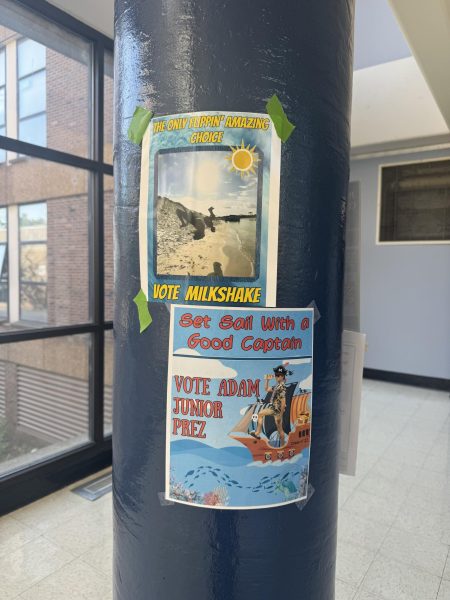
LOCO has a TikTok account and is also active on Instagram. These platforms can showcase student leaders, revealing the work they do in and out of school. While some student leaders are already utilizing these platforms, weekly or daily coverage of LOCO activities could be more beneficial. Moreover, students should have easy access to contact student leaders, as they can create true change within the Parkway West community. At the beginning of the year, LOCO should consider implementing a meet and greet on social media, in the format of a TikTok or Instagram livestream or possibly a series of posts.
“Even though there [are] posters, it’s not easy to see who’s running [for a position]. Maybe [candidates can] come up with ways other than posters to [campaign],” sophomore Haley Puglisi said.
The campaigns and the connections that student candidates create are more than for the student body; they help to build the spirit and culture of West High. When more students engage in important dialogue and make decisions that affect the trajectory of a whole school year, they strengthen the community on which West High prides itself. LOCO members must increase their presence and visibility amongst West and carry the Longhorn spirit throughout the year.
It is important to remember that this is a two-way street. Students should also engage in these conversations and take part in building the spirit. The Longhorn Council emphasized that they are open to student body involvement, as well as suggestions to build their program. Constituents can start by recognizing that their voice has power and can share it with leaders as well. West High and LOCO want to prioritize students and make the school a place to belong. This culture comes from prioritizing positive exchanges between students and student leaders.

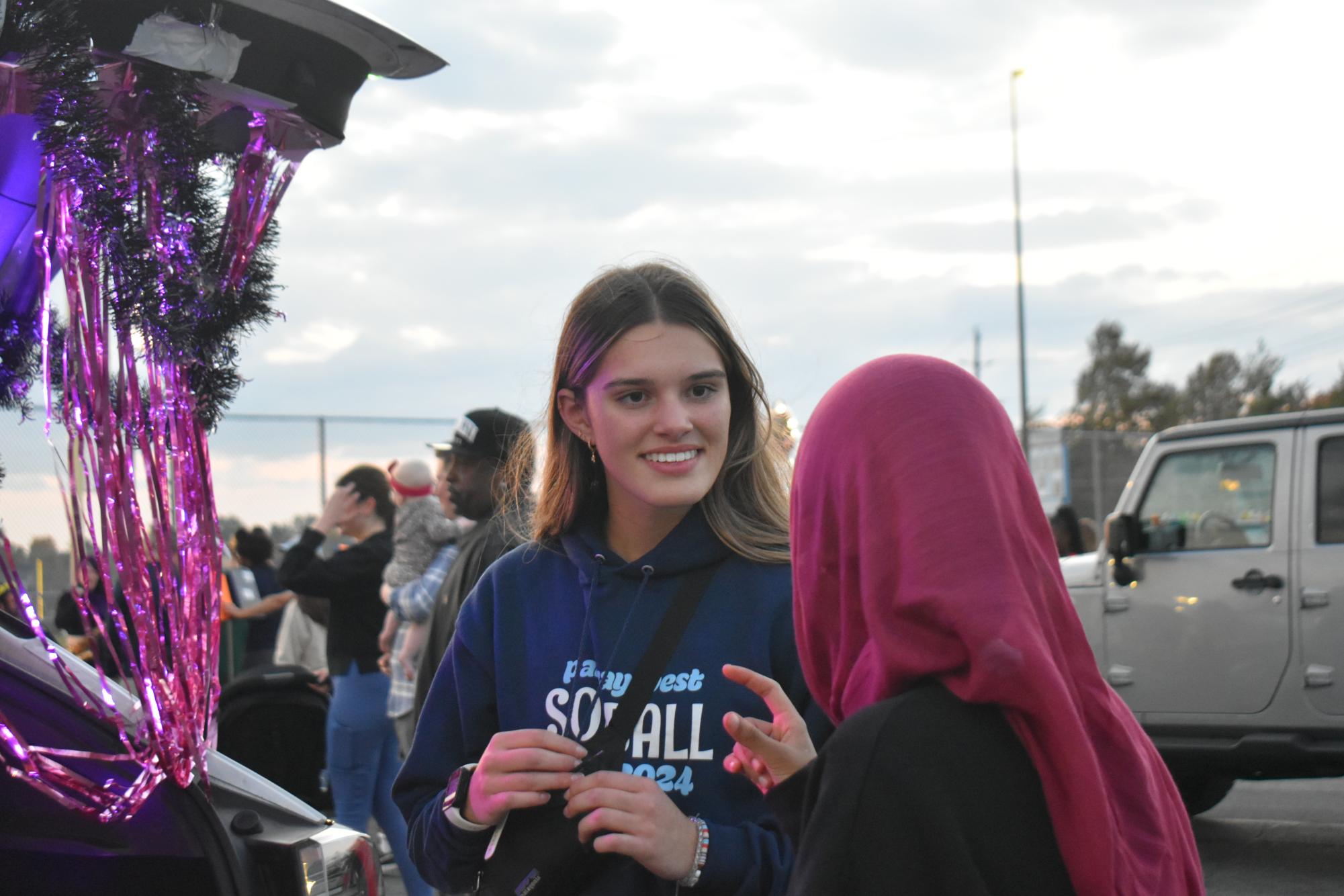
![Leaning on the podium, superintendent Melissa Schneider speaks to Parkway journalism students during a press conference. Schneider joined Parkway in July after working in the Thompson School District in Colorado. “My plan [to bond with students] is to get things on my calendar as much as possible. For example, being in [classes] is very special to me. I am trying to be opportunistic [meeting] kids [and] being in [the school] buildings. I have all the sports schedules and the fine arts schedules on my calendar, so that when I'm available, I can get to them,” Schneider said.](https://pwestpathfinder.com/wp-content/uploads/2025/09/IMG_5425-1200x943.jpeg)
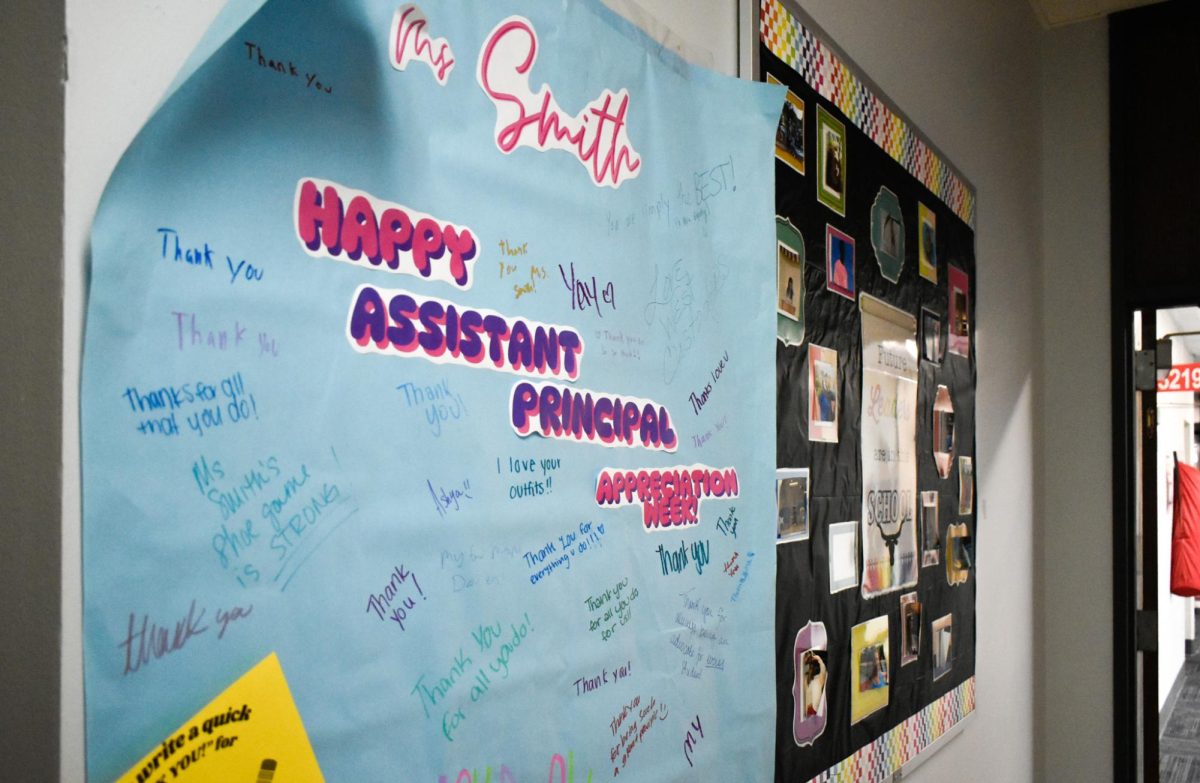
![Red, white and blue, the American flag holds the values of our democracy. The fight that we once endured has returned, as student journalists and senior correspondents across the country are losing their voices due to government control. “[Are] the White House and [the] government limiting free speech [and] freedom of the press? Yes [they are],” chief communications officer of the Parkway School District and former journalist Elisa Tomich said.](https://pwestpathfinder.com/wp-content/uploads/2025/03/Untitled-design-14.jpg)
![A board in the Parkway West counseling department displays pennants of selective universities. With a wide range of students interested in attending, it’s important that these schools have clear priorities when deciding who to admit. “[Washington University] had the major that I wanted, psychology, philosophy, neuroscience. That's a holistic study of the brain, and [WashU is] the only college in the world that offers that. That's the main reason I wanted to go; I got into that program,” senior Dima Layth said.](https://pwestpathfinder.com/wp-content/uploads/2025/02/Flag-1.png)
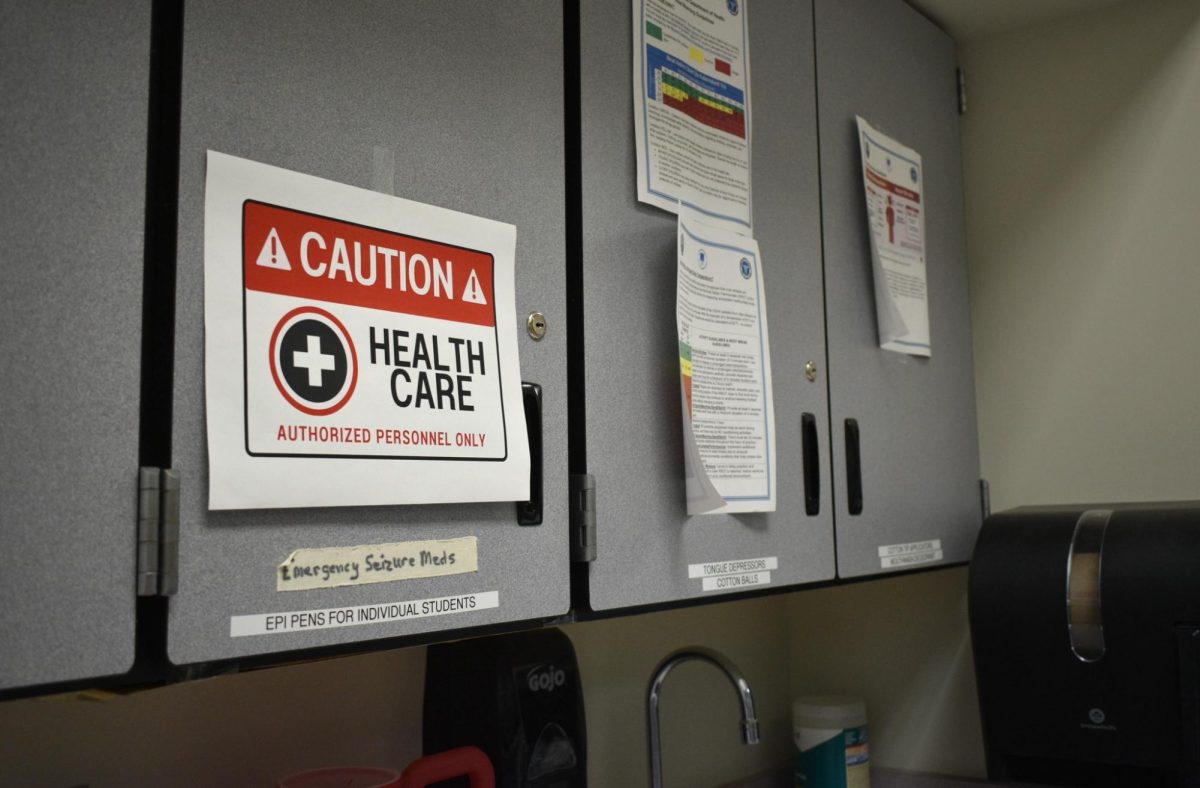
![Within the U.S., the busiest shopping period of the year is Cyber Week, the time from Thanksgiving through Black Friday and Cyber Monday. This year, shoppers spent $13.3 billion on Cyber Monday, which is a 7.3% year-over-year increase from 2023. “When I was younger, I would always be out with my mom getting Christmas gifts or just shopping in general. Now, as she has gotten older, I've noticed [that almost] every day, I'll open the front door and there's three packages that my mom has ordered. Part of that is she just doesn't always have the time to go to a store for 30 minutes to an hour, but the other part is when she gets bored, she has easy access to [shopping],” junior Grace Garetson said.](https://pwestpathfinder.com/wp-content/uploads/2024/12/DSC_0249.JPG-1200x801.jpg)
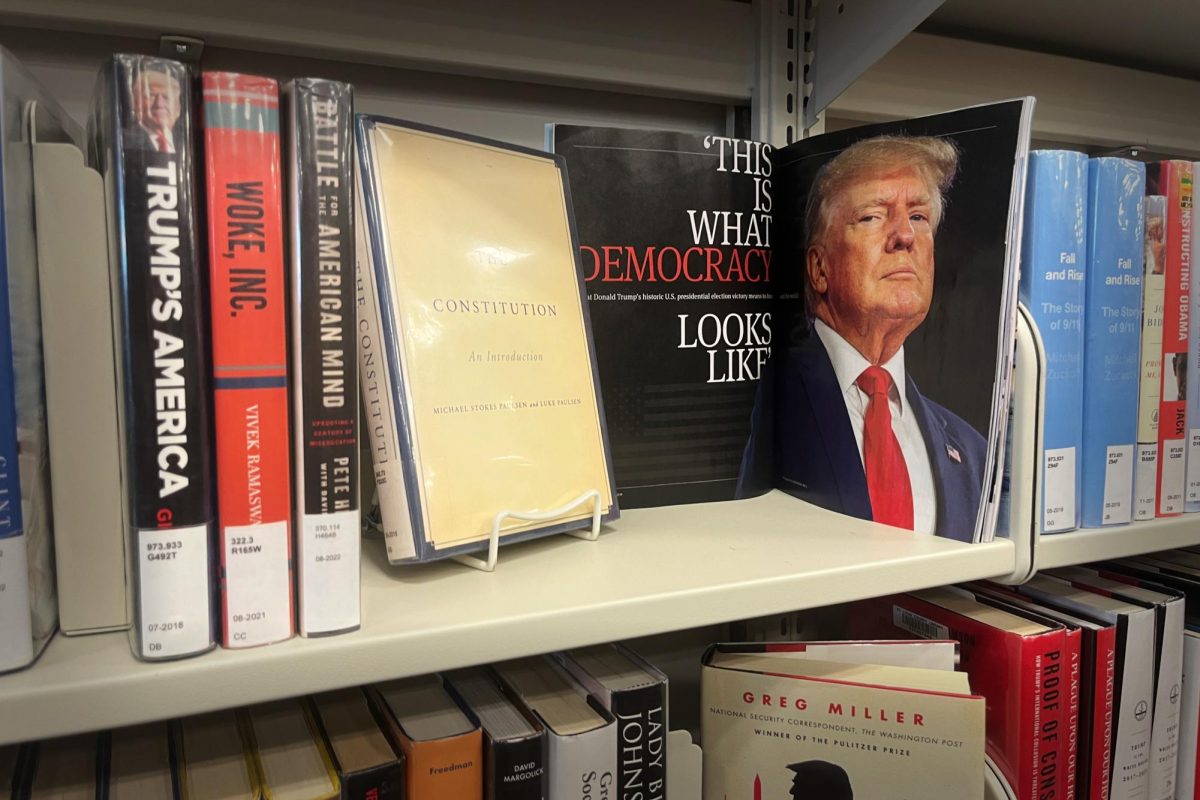
![Senior Sally Peters stands in the history hallway, contemplating her choices in the 2024 United States and Missouri elections on Nov. 5. As a member of Diplomacy Club, Peters has discussed key candidates and issues in contemporary American politics. “[As students], we're starting to become adults. We're realizing how much the policies that are enforced and the laws that make it through the House and Senate are starting to affect us. [Opportunities such as] AP [U.S.Government] and Diplomacy Club [make elections feel] a lot more real,” Diplomacy Club vice president and senior Nidhisha Pejathaya said.](https://pwestpathfinder.com/wp-content/uploads/2024/10/Flag-1-1.png)
![Mounting school pressure can leave many students overworked and overstressed. Schools must give students the necessary resources to help assuage student mental health issues and prevent the development of serious crises. “The biggest thing [schools] can do [to protect student mental health] is offer more time [to do work], like a study hall, or offer more support from teachers so that students don't feel stressed out and can get help in areas that they need,” senior Bhavya Gupta said.](https://pwestpathfinder.com/wp-content/uploads/2024/09/unnamed-4.jpg)
![Like many students, sophomore Medina Nanic experiences pressure to do well in school. Through continuous success and achievements, West has developed a high academic standard for students. “Because we’re seen as one [of] the better schools, we have higher standards than the [schools] who aren’t ranked as high. There’s a lot of pressure on students to do [well] and live up to those standards,” Nanic said.](https://pwestpathfinder.com/wp-content/uploads/2024/05/DSC_0029-2-1200x800.jpg)
![Gazing across the stage, sophomore Alexis Monteleone performs in the school theater. The Monteleone family’s band “Monte and the Machine” has been releasing music since 2012, but Alexis started her own solo career in 2024 with the release of her first single, Crying Skies. “My whole family is very musical, [and I especially] love writing [songs with them],” Monteleone said.](https://pwestpathfinder.com/wp-content/uploads/2025/09/DSC7463-1200x798.jpg)

![Leaping through the air, senior Tyler Watts celebrates his first goal of the season, which put the Longhorns up 1-0 against the Lafayette Lancers. Watts decided to play soccer for West for his last year of high school and secured a spot on the varsity roster. “[Playing soccer for West] is something I had always dreamed of, but hadn’t really had a good opportunity to do until now. It’s [really] fun being out [on the field], and I’m glad I decided to join the team. It’s just all about having fun with the boys and enjoying what time we have left together,” Watts said.](https://pwestpathfinder.com/wp-content/uploads/2025/09/DSC_1951-1200x855.jpg)
![Junior Fiona Dye lifts weights in Strength and Conditioning. Now that the Trump administration has instituted policies such as AI deregulation, tariffs and university funding freezes, women may have to work twice as hard to get half as far. "[Trump] wants America to be more divided; he wants to inspire hatred in people,” feminist club member and junior Clara Lazarini said.](https://pwestpathfinder.com/wp-content/uploads/2025/05/Flag.png)
![As the Trump administration cracks down on immigration, it scapegoats many immigrants for the United States’ plights, precipitating a possible genocide. Sophomore Annabella Whiteley moved from the United Kingdom when she was eight. “It’s pretty scary because I’m on a visa. When my visa expires next year, I’m not sure what’s going to happen, especially with [immigration] policies up in the air, so it is a concern for my family,” Whiteley said.](https://pwestpathfinder.com/wp-content/uploads/2025/05/DSC_0077-7copy.jpg)
![Shifting global trade, President Donald Trump’s tariffs are raising concerns about economic stability for the U.S. and other countries alike. “[The tariffs are] going to pose a distinct challenge to the U.S. economy and a challenge to the global economy on the whole because it's going to greatly upset who trades with who and where resources and products are going to come from,” social studies teacher Melvin Trotier said.](https://pwestpathfinder.com/wp-content/uploads/2025/05/MDB_3456-1200x800.jpg)

![Pitching the ball on Apr. 14, senior Henry Wild and his team play against Belleville East. Wild was named scholar athlete of the year by St. Louis Post-Dispatch after maintaining a high cumulative GPA and staying involved with athletics for all of high school. “It’s an amazing honor. I feel very blessed to have the opportunity to represent my school [and] what [it] stands for,” Wild said.](https://pwestpathfinder.com/wp-content/uploads/2025/05/unnamed-6-1200x714.jpg)
![Freezing in their position, the Addams Family cast hits the “rigor mortis” pose after cast member and senior Jack Mullen, in character as Gomez Addams, calls out the stiff death move. For the past four months, the combined company of cast members, orchestra pit, crew and directors all worked to create the familial chemistry of the show. “I’m excited for [the audience] to see the numbers, the music, the scenes, but I also just love all the technical aspects of it. The whole spectacle, the costumes, makeup and the people that put in the work backstage in order to make the show successful on stage. I’m excited for people to see and appreciate that,” Mullen said.](https://pwestpathfinder.com/wp-content/uploads/2025/03/DSC0116-1200x800.jpg)
